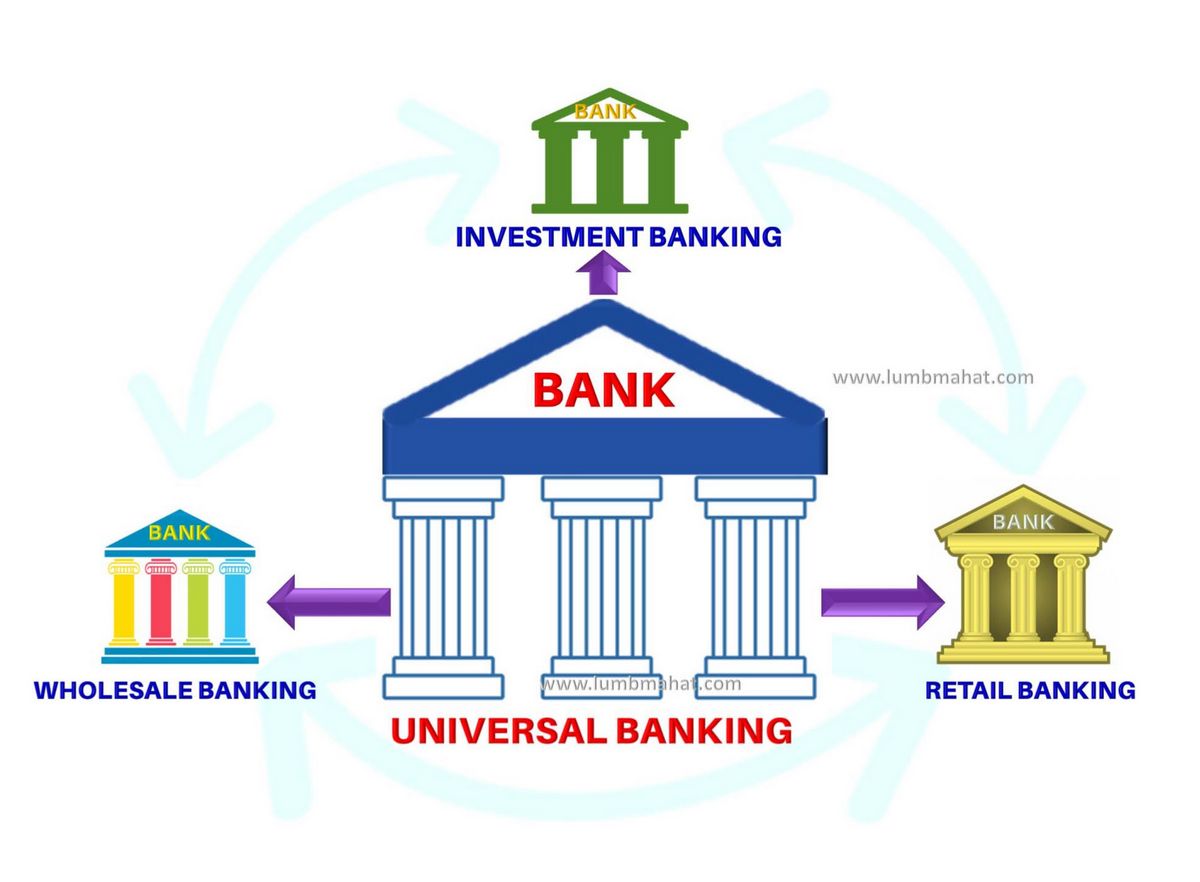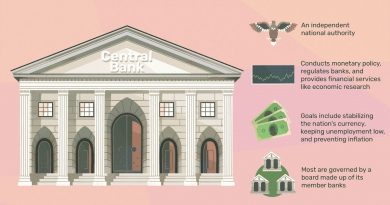Universal Banking Definition Functions Regulation

Contents
- 1 Universal Banking: Definition, Functions, Regulation
Universal Banking: Definition, Functions, Regulation
What Is Universal Banking?
Universal banking is a system in which banks provide a wide variety of comprehensive financial services, including those tailored to retail, commercial, and investment services. It is common in some European countries, including Switzerland.
The system became more common in the United States starting in 1999 when the Gramm-Leach-Bliley Act (GLBA) repealed restrictions preventing commercial banks from offering investment banking services. Proponents argue that it helps banks better diversify risk, while detractors think dividing up banking operations is a less risky strategy.
Key Takeaways
- Universal banking refers to banks that offer a variety of comprehensive financial services, including both commercial and investment banking services.
- Commercial banks typically offer consumer and business services such as checking and savings accounts, loans (including mortgages and auto loans), and certificates of deposits (CDs).
- Investment banks provide merger and acquisition services for corporations, underwriting services, and brokerage services for institutional and private clients.
- Banks in a universal system may still specialize in a subset of commercial or investment banking services.
How Universal Banking Works
Universal banks may offer credit, loans, deposits, asset management, investment advisory, payment processing, securities transactions, underwriting, and financial analysis. However, banks in a universal system may still choose to specialize in a subset of banking services.
Universal banking combines the services of a commercial bank and an investment bank, providing all services from within one entity. The services can include deposit accounts, investment services, and even insurance services. Deposit accounts within a universal bank may include savings and checking accounts.
In a universal system, banks can choose to participate in any or all of the permitted activities. They are expected to comply with all guidelines that govern proper management of assets and transactions. Regulations may vary from one institution to another, so it is important not to confuse the term "universal bank" with any similar-sounding financial institution.
Notable universal banks include Deutsche Bank, HSBC, and ING Bank. In the United States, Bank of America, Wells Fargo, and JPMorgan Chase qualify as universal banks.
The History of Universal Banking in the U.S.
The universal banking system was slow to grow in the United States due to strict regulation. The Glass-Steagall Act, part of the Banking Act of 1933, prohibited universal banking during the Great Depression.
The act prohibited commercial banks from providing investment banking services such as securities trading and brokerage services. It also established the Federal Deposit Insurance Corporation (FDIC), an independent federal agency that insures U.S. bank deposits against failures.
In 1999, the Gramm-Leach-Bliley Act partially repealed the Glass-Steagall Act, making it legal for commercial banks to offer investment banking services. The goal was to modernize the financial services industry by allowing institutions to expand the products and services they could offer.
Financial Crisis and Changing Regulations
Laws impacting universal banking in the U.S. have continued to evolve and change, especially during times of economic upheaval. The 2008 financial crisis led to failures within the U.S. investment banking system, with notable examples including Lehman Brothers and Merrill Lynch.
In response, Congress enacted the Dodd-Frank Wall Street Reform and Consumer Protection Act in 2010, which restricted the ways in which banks could invest. It limited speculative trading and prohibited involvement with hedge funds and private equity firms.
In 2018, Congress enacted the Economic Growth, Regulatory Relief, and Consumer Protection Act (also known as the Crapo Bill), rolling back some Dodd-Frank restrictions.
Despite changing regulations, many financial service providers in the U.S. today offer a range of services from banking, loans, mortgages, insurance, and investments either under one roof or through affiliate networks.
While developments have removed barriers to universal banks in the U.S., they are still not as prevalent as in many European countries, where banks focusing purely on investments are uncommon.
What Is an Example of Universal Banking?
Examples of universal banks include JPMorgan Chase, Bank of America, Wells Fargo, UBS, BNP Paribas, Deutsche Bank, and Barclays. These banks provide a gamut of banking services from retail banking to investment banking.
What Is the Advantage of Universal Banking?
The advantage of universal banking for customers is the ability to manage all finances under one roof. For banks, it allows them to make more money by providing a variety of services and charging for them.
What Is a Disadvantage of a Universal Bank?
Disadvantages of universal banks include risk concentration for the client and conflicts of interest in certain areas, primarily related to interest earned on deposits.
The Bottom Line
Universal banking refers to banks providing a wide array of financial services, including commercial banking, investment banking, and retail banking. Regulations surrounding what banks can provide have changed over time in the U.S. to protect clients while remaining competitive.



